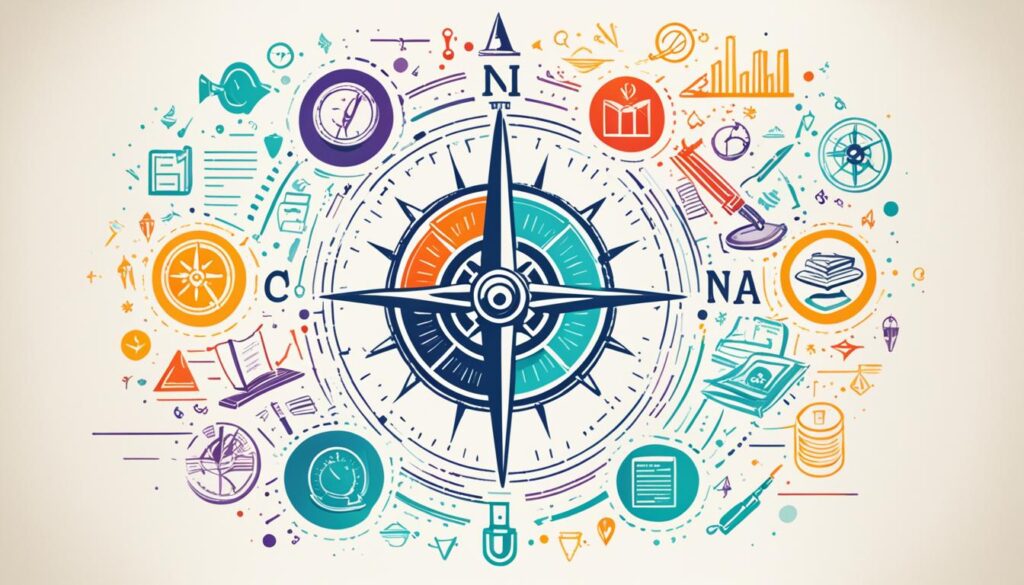Have you pondered the essence of success within the realms of higher academia? It extends beyond the confines of lecture halls and the pinnacle of exam scores. Herein, we introduce the Thai Academic Expedition, an inventive initiative by The Continents States University. It confronts and redefines the traditional metrics of academic triumph.
The journey spans 18 days, weaving through the diverse landscapes of Thailand, enriching participants with the country’s cultural, economic, and environmental conservation endeavors. More than an educational escapade, it transcends conventional classroom boundaries. Participants engage directly with local connoisseurs, partake in cross-cultural exchanges with Thai peers, and scrutinize career avenues that marry global altruism with ethical business modus operandi.
In contemplation of how this voyage recalibrates the compass of success in higher education, we explore the expedition’s capacity to foster transformational experiences. These experiences not only redefine educational success but also elucidate the broader spectrum of its benefits. Embark with us as we explore the profound impact of the Thai Academic Expedition on paving avenues to academic and personal enrichment.
Key Takeaways:
- The Thai Academic Expedition offers a unique opportunity to immerse oneself in Thai culture, economy, and sustainability efforts.
- Students gain valuable insights through site visits, interactions with experts, and collaborative learning with Thai students.
- The program encourages global service, responsible business practices, and personal growth.
- Collaboration and practical knowledge play a significant role in navigating the challenges of globalization.
- Study abroad programs like the Thai Academic Expedition shape students’ perspectives and prepare them for success in a globalized world.
The Continents States University: A Unique Approach to Higher Education
The Continents States University distinguishes itself from conventional educational models through an innovative approach to higher education. Unlike traditional academic institutions, it eschews standardized exams and live lectures as the primary mode of teaching. It opts for a methodology that foregrounds continuous, accessible education.
Through this approach, learners are encouraged to absorb knowledge at a pace that best suits them, thereby promoting a more profound comprehension and retention of material. This student-centered framework bestows upon individuals the autonomy to customize their educational journey, aligning it with their personal aspirations and interests.
At The Continents States University, we believe that education should be an ongoing journey of discovery and growth, rather than a series of tests and deadlines. We encourage our students to embrace a passion for learning and engage in intellectual exploration that extends far beyond the confines of a traditional classroom.
The Thai Academic Expedition stands as a prime example of the unique offerings at The Continents States University. This program immerses participants in Thailand’s rich culture, dynamic economy, and sustainability initiatives. It, along with other study abroad and immersion programs, facilitates the acquisition of a global perspective and cultural competency, attributes immensely valuable in today’s interconnected society.
During your tenure at The Continents States University, emphasis is placed on practical knowledge. Theory, while foundational, is deemed insufficient for real-world success. Consequently, there exists a concerted focus to equip students with practical skills and experiences, enhancing their competence in their prospective careers.
At The Continents States University, we firmly believe that education should not only equip you with knowledge but also provide you with the tools to transform that knowledge into action. Our goal is to empower you to make a meaningful impact in your field and society as a whole.
The institution’s philosophy also encompasses engagement in job creation initiatives. You will interact with leading professionals, entrepreneurs, and industry experts, gaining insights into the professional realm and understanding the role of entrepreneurship in fostering economic development.
This distinctive approach ensures graduates are versatile and resilient, ready to navigate the complexities of a changing global scene. The experience here shapes not just your academic pursuit but also lays the groundwork for a prosperous and rewarding career.

Continuing Education for Lifelong Success
The Continents States University champions the concept of continuous learning as a cornerstone for enduring success. To us, higher education transcends obtaining a degree; it represents a formative expedition that persists post-graduation.
By adopting our unique educational model, you will hone vital skills such as critical thinking, problem-solving, and adaptability—skills imperative for thriving in the modern world. Our stress on hands-on knowledge and experiential learning prepares you to tackle professional challenges and contribute meaningfully to your field.
“Education is not the filling of a pail, but the lighting of a fire.” – William Butler Yeats
At The Continents States University, our aim is to ignite your passion for learning, propelling you toward self-driven success. This distinct approach to education promises a transformative experience, breaking the confines of conventional learning environments. It fosters personal development and unleashes your potential.
Experience unparalleled education at The Continents States University. Here, you’re equipped with the knowledge, skills, and perspective to excel in the global stage of the 21st century.
The Benefits of the Thai Academic Expedition
Participating in the Thai Academic Expedition proffers substantial advantages for scholars, delivering an unparalleled foray into Thai culture. This aligns you closely with the nation’s economic and environmental sustainability initiatives. The immersion fosters an expanded comprehension of Thai societal intricacies.
This initiative facilitates the formation of enduring affiliations with Thai academics and domain specialists. These relationships are conduits to critical insights and expansive networking prospects, crucial for scholarly and vocational advancements.
The expedition incorporates visits to significant sites, enabling direct engagement with local entrepreneurs, monks, and academicians. Such interactions afford a myriad of perspectives on globalization’s impacts and nuances, broadening your analytical horizon.

Traversing diverse Thai locales, participants can delineate conceivable vocational trajectories grounded in global service, cultural diplomacy, and ethical commerce. This direct exposure aids in elaborating well-informed vocational strategies.
The expedition is not merely a trip; it is an intellectual odyssey that augments academic tenacity, vocational acumen, and personal evolution. Through active engagement, you acquire a cosmopolitan outlook and enhanced cultural dexterity.
It induces adaptability, fortitude, and advanced cross-cultural communicative competencies. These attributes are highly coveted in the contemporary, globalized employment landscape, marking you as a distinguished candidate.
In conclusion, the Thai Academic Expedition is more than an educational pursuit; it’s a pivotal, life-altering journey. It expands your intellectual vistas, refines your professional aptitudes, and equips you to adeptly maneuver through the complexities of the global educational and professional spheres.
The Impact of Collaboration in Higher Education
In higher education, collaboration serves as a fundamental component. It unites experts, scholars, and researchers from varied fields to share insights, knowledge, and experiences. Such collaborative efforts are pivotal in allowing students to comprehend intricate subjects and innovate solutions.
The integral role collaboration plays in the Thai Academic Expedition significantly elevates the academic experience. Engagements with Thai students, business proprietors, social innovators, and academicians are facilitated. These interactions cultivate fresh viewpoints, enhance cross-cultural comprehension, and stimulate ideational exchanges.
Students, through collaborative endeavors, address multifaceted issues and confront real-world dilemmas. The global community’s joint efforts are instrumental in navigating global complexities and fostering sustainable measures. Collaboration broadens students’ global perspectives, honing critical analytical, cooperative, and problem-solving abilities.
By leveraging the collective intellect and expertise, students encounter innovation and creativity. It propels them beyond their comfort realms, welcoming varied thought processes and debunking traditional paradigms. Collaborative engagements offer a pathway to varied methodologies, unveiling novel discoveries.
Benefits of Collaboration
Higher education reaps numerous advantages from collaboration:
- Collaboration creates a vibrant educational milieu, encouraging peer-learning and insights exchange. This enhances active participation and a profound comprehension of topics.
- Collaboration exposes students to a plethora of ideas, cultures, and philosophies. It cultivates a global mindset, expanding intellectual boundaries.
- Valuable networks are formed through cooperative projects, connecting students with fellow scholars, educators, and industry professionals. These networks are indispensable for career advancements and professional growth.
- It polishes vital competences such as communication, leadership, collaboration, and negotiation, cherished in the contemporary employment landscape and pivotal for career progression.
- Creative, innovative, and analytical capabilities are fortified. It encourages students to embrace unique perspectives, pioneering ideas, and formulating solutions for complex challenges.
Collaboration, when harnessed, enhances the higher education journey, equipping students for future triumphs. The Thai Academic Expedition exemplifies a collaborative learning and research platform, empowering students to develop key skills and contribute to societal betterment.

Transitioning to University Life: Challenges and Opportunities
The metamorphosis from high school to university encompasses excitement and apprehension. Embarking on this novel phase of your scholarly quest, myriad challenges and prospects await. Graduates from the Thai Academic Expedition, possessing firsthand transition success, share quintessential insights and tactics for optimizing the university experience.
The paramount challenge encountered is the confrontation with newfound independence and accountability. Ample freedom and autonomy in time administration and decision-making emerges abruptly. Mastery of one’s educational trajectory, target setting, and honing of time management aptitudes are imperative. This liberation also unfurls an opportunity to delve into interests, foster personal development, and sculpt your prospective future.
“University life proffers a plethora of avenues for introspection and exploration. It signifies an opportunity to transcend your comfort zone and engage in challenges previously unimagined.”
Election of a major or study domain poses a formidable challenge, attributed to the extensive array of available choices. It necessitates diligent research across diverse fields, passion pursuit, and contemplation of future aspirations. Solicitation of advice from academic mentors and field-specific professionals is encouraged. Embrace the journey of personal and intellectual evolution, recognizing the adaptability to shift majors upon the advent of new interests.
Acclimatization to university’s academic rigors and social fabric presents obstacles. The intensified workload demands augmented commitment and refined time management prowess. The cultivation of effective study methodologies, leveraging collegiate resources such as tutoring and study collectives, and the quest for assistance when requisite are critical. Fostering friendships and engaging in extracurricular undertakings can ameliorate social challenges, engendering a communal sense of belonging.
“The essence of university life transcends academic pursuits; it embodies the cultivation of lifelong connections, the discovery of novel passions, and the broadening of perspectives. Seize these opportunities and maximize your university tenure.”
By proactively addressing these obstacles, they metamorphose into opportunities for personal and academic fruition. The strategic utilization of collegiate supports, such as counseling and student networks, is pivotal for triumph. Nurturing connections with faculty, staff, and peers bestows a trove of support and guidance. Participation in campus events, organization membership, and leadership roles cultivation are instrumental for skill development and networking.
The transition to university heralds a pivotal juncture teeming with potential. Confronting challenges and capitalizing on opportunities pave the path to thrive academically, broaden perspectives, and mold the future.

The Importance of:
- Developing time management skills
- Exploring different majors and fields of study
- Utilizing campus resources
- Creating a sense of belonging
- Building a strong network
The Importance of Continuous Learning in Higher Education
Continuous learning transcends classroom and textbook limitations, essential for acquiring skills and knowledge vital in the rapidly evolving global landscape. It embodies a core principle of higher education, positioning students for success in diverse fields.
The Continents States University’s Thai Academic Expedition underscores lifelong learning’s importance. By engaging in experiential learning, such as visits to renewable energy firms and elephant conservation initiatives, students gain firsthand insights into global challenges.

This direct engagement offers a comprehensive understanding of sustainability, global interconnectivity, and cultural diversity. Such knowledge is imperative for academic and professional achievement, preparing students to excel in their future endeavors.
Encouraging an ethos of curiosity and resilience, the program equips students with critical thinking skills and adaptability. This enables them to effectively address and navigate the complexities of the international economy and societal change.
“The Thai Academic Expedition has profoundly enriched my educational journey. It provided me with a broader worldview and essential skills through engaging with renewable energy initiatives and local communities.”
Continuous learning’s objective in higher education is to prepare students for the dynamic world by fostering adaptability and lifelong learning. It propels students to remain at the cutting edge of their fields, continuously acquiring new knowledge.
Benefits of Continuous Learning in Higher Education:
- Enhanced problem-solving abilities
- Increased adaptability in a dynamic global landscape
- Deeper understanding of real-world challenges and opportunities
- Broadened perspectives on various cultures and economies
- Improved critical thinking skills
- Expanded professional networks
Continuous learning equips students with a strategic advantage for meeting future challenges and seizing opportunities. The Thai Academic Expedition is a testament to the dedication to lifelong learning, offering a pivotal and transformative educational journey.
The Transformative Power of Study Abroad Programs in Higher Education
Study abroad programs, such as the Thai Academic Expedition, transcend traditional academic boundaries. They empower students with profound personal growth, cultural insight, and a commitment to global engagement. Immersion in diverse cultures fosters a comprehensive worldview, nurturing a profound respect for diversity and global interconnectivity.
“Studying abroad propels you beyond your comfort zone, unveiling novel lifestyles,” articulates Sarah Johnson, a Thai Academic Expedition alumna. “It necessitates adaptation to new environments, mastery over unaccustomed dilemmas, and the adoption of varied viewpoints. The impact on one’s life is monumental.”
Such programs are not merely educational but experiential, bridging theoretical knowledge with practical application. They cultivate adaptability, resilience, and cross-cultural communication, essential qualities in today’s society. Interacting within foreign communities deepens students’ comprehension of global dilemmas and fosters a robust sense of societal commitment.

Expanding Horizons
These programs significantly widen students’ perspectives, exposing them to unfamiliar traditions and lifestyles. Residing in foreign nations offers students an intimate understanding of cultural intricacies. This experience seeds empathy and tolerance, virtues indispensable in our interconnected civilization.
Cross-Cultural Communication
Dialogue with diverse cultures bolsters students’ cross-cultural communication abilities. Overcoming language barriers and engaging with local populations enables students to refine their communicative techniques. Such interactions enhance their appreciation for the intricacies of effective intercultural dialogue.
- Studying abroad provides an immersive language learning experience.
- Students gain confidence in their communication abilities by using their new language skills in everyday situations.
- Interacting with locals helps students grasp the cultural nuances of language, such as idioms and expressions.
Personal and Professional Growth
Study abroad experiences significantly contribute to personal development, bolstering independence and self-assurance. Students learn to navigate challenges with resilience and adapt smoothly to new circumstances. These attributes are invaluable in the global workforce, making graduates more desirable to employers.
“The experience pushed me into unfamiliar territories, honing crucial skills like adaptability and problem-solving,” Mark Lewis, another Thai Academic Expedition alumnus, reflects. “It notably enhanced my career prospects and unveiled new avenues of opportunity.”
Beyond personal development, study abroad programs enrich students with unique perspectives that shape their academic and professional trajectories. Exposure to diverse industries, cultural practices, and societal challenges stimulates a passion for specific career paths and studies. These experiences align with students’ evolving interests and values.
Embracing international education opportunities, students tap into the profound transformative potential. They not only expand their outlooks but also acquire essential skills and knowledge for success in a global context.
The Value of Practical Knowledge in Higher Education
The Thai Academic Expedition champions the indispensable role of practical knowledge within the realm of higher academia. It advocates for immersive learning experiences and the engagement with regional professionals, affording students an enriched comprehension of the intricacies encountered outside traditional academic settings. This form of education serves not merely as an adjunct but as a vital counterpart to theoretical frameworks, crafting a comprehensive educational journey conducive to success beyond the university’s confines.
Participation in experiential learning initiatives enables learners to apply academic theories in tangible contexts, thereby honing their analytical prowess, problem-solving capabilities, and innovative faculties. Visits to commercial establishments, cultural institutions, and environmental projects provide a firsthand look at the multifaceted global market structure. They illuminate the underpinnings of advancement and introduce students to the real-world nuances that dictate economic and cultural evolution.
Sarah Johnson, an alumnus of the expedition, reflects on her participation: “The opportunity to delve into Thai culture and collaborate with local connoisseurs offered us an unprecedented perspective on the hurdles confronting businesses and societies. The experiential wisdom we garnered enabled us to devise pioneering solutions and forge a meaningful difference throughout our stay.”
Educational entities, including The Continents States University, integrate practical insights into their curriculum to arm scholars with the adeptness required for fluency in the unpredictable global financial landscape. Such preparedness not only boosts employability but also capacitates graduates to contribute significantly to societal welfare.
Dr. James Miller, the overseer of academic curriculum at The Continents States University, emphasizes the unparalleled worth of experiential learning: “The assimilation of actionable insights bridges the theoretical-practical divide, setting the stage for groundbreaking innovations and profound societal impacts.”
The melding of actionable knowledge into academia cultivates an environment where students are not just academically proficient but are also imbued with confidence and versatility. It compels them to engage with complex issues from a pragmatic stance.
Anchoring its educational philosophy in pragmatic learning, the Thai Academic Expedition ensures its disciples are poised for effective engagement with the host of uncertainties characterizing today’s global economic arena. The fusion of hands-on experiences with scholarly learning equips them with the acumen necessary for navigating professional landscapes and effectuating notable contributions in their respective domains.
The Significance of Accessible Education in Higher Education
In the realm of higher education, the pivotal role of accessible education lies in its ability to guarantee equal opportunities for all academicians. The Continents States University’s Thai Academic Expedition exemplifies this principle by transcending conventional pedagogical approaches like examinations and live lectures. This avant-garde methodology encourages perpetual learning and profound engagement with academic material.
Dispensing with the constraints imposed by standardized tests and fixed lectures, accessible education introduces a tailored and adaptable educational paradigm. This modality accommodates divergent learning preferences and necessities, thereby ensuring academic success for every student. Whether one gravitates towards experiential learning, interactive dialogues, or autonomous study, accessible education endows you with the autonomy to pursue knowledge in a manner that resonates with you.
Furthermore, accessible education is a cornerstone of inclusivity in the academic sphere. It diligently ensures that educational hurdles, whether physical, cognitive, or otherwise, do not hinder a student’s academic voyage. By adhering to accessibility principles, academic institutions forge a milieu where every student can fully engage, offer valuable insights, and realize their utmost potential.
Among its myriad benefits, accessible education crucially nurtures a supportive and cooperative educational atmosphere. Such an environment is conducive to the cultivation of analytical thinking, problem-solving prowess, and a fervent inclination towards lifelong learning. Accessible education invites you to immerse yourself in academic content, solicit inquiries, and venture into novel intellectual territories alongside colleagues and mentors.
Accessible education promotes inclusivity and ensures that all students have an equal opportunity to thrive academically.
Beyond fostering academic acumen, accessible education is instrumental in equipping learners with versatile competencies. Skills such as adaptability, ingenuity, and proficient communication are increasingly prized in the contemporary employment landscape. Adopting accessible education principles fortifies you with the requisite capabilities to surmount future challenges and substantially contribute to your field of expertise.
Esteemed institutions, including The Continents States University, are cognizant of accessible education’s paramount importance and are dedicated to establishing an inclusive and nurturing educational setting. Initiatives like the Thai Academic Expedition are designed to provide students with learning avenues that address their individual preferences and goals.
To summarize, accessible education is not merely essential; it is transformative within the higher education context. It empowers students to transcend educational barriers, encourages cooperative learning, and advocates for inclusivity. By embracing accessible education, you unlock unprecedented potential, embark upon new academic endeavors, and gear up for a prosperous and rewarding educational journey.
Job Creation Initiatives in Higher Education
Job creation initiatives in higher education stand as a pivotal element. The Thai Academic Expedition offers students a thorough exposure to sustainable business practices alongside social entrepreneurship. Through visits to renewable energy firms and discussions with social entrepreneurs, students obtain valuable perspectives. These experiences illuminate the pathways through which businesses can spur job creation, propel economic growth, and champion environmental stewardship and social inclusivity.
This program is designed to steer students towards impactful careers, thereby fostering opportunities for broader societal benefit. By weaving job creation initiatives into the fabric of higher education, it equips students to substantially enhance the vitality and well-being of their communities.
“By visiting these companies, I saw first-hand how business can have a meaningful impact on job creation. It inspired me to pursue a career that not only benefits me but also provides opportunities for others.” – Sarah Thompson, Thai Academic Expedition Alumni
The Power of Social Entrepreneurship
Social entrepreneurship emerges as a cornerstone for job creation and comprehensive economic advancement. Marrying astute business strategies with a zeal for tackling environmental and social issues, social entrepreneurs forge novel solutions. These solutions are pivotal in addressing pervasive societal challenges while simultaneously creating jobs. Through the Thai Academic Expedition, students gain the rare opportunity to engage with these innovators and absorb the essence of their motivational narratives.
- Gain insights into the different models of social enterprises
- Understand the social and economic impact of social entrepreneurship
- Learn how to foster sustainable business practices
- Explore potential career paths in social entrepreneurship
In delving into the realm of social entrepreneurship, students cultivate a profound comprehension. This understanding extends to how businesses can enact significant transformative change, facilitating job creation while confronting social and ecological dilemmas.
Career Opportunities in Sustainable Business
The nexus between sustainable business practices, job creation, and economic expansion cannot be overstated. The Thai Academic Expedition illuminates this connection by introducing students to companies at the forefront of sustainability. These encounters demonstrate the manner in which enterprises can simultaneously advance environmental conservation efforts and foster job creation.
- Visit renewable energy companies and learn about job prospects in the green energy sector
- Explore sustainable agriculture and discover career options in organic farming and agri-business
- Engage with companies implementing responsible manufacturing practices that create employment opportunities
Through an understanding of sustainable business practices and their role in job generation, students are inspired to embark on careers. These careers not only resonate with their personal ethos but also contribute positively to community well-being.
Personal Growth and Professional Insights through Study Abroad Programs
Study abroad programs, like the Thai Academic Expedition, offer profound opportunities for personal growth alongside unparalleled professional insights. Alumni have reported significant enhancements in their intellectual, professional, and personal spheres due to their participation.
Throughout their stay in Thailand, students were involved in various activities, including cultural excursions and language learning. These experiences fostered profound connections with the local populace, providing students with an authentic insight into Thai culture and way of life.
Participation in the Thai Academic Expedition afforded students a global viewpoint, significantly broadening their perspectives. They acquired a rich appreciation for cultural diversity and honed their abilities to adeptly navigate cross-cultural environments. Such cultural competence is indispensable in the globalized context of the present day.
The expedition was also instrumental in refining students’ critical thinking and problem-solving prowess. Confronted with unfamiliar situations, students learned to devise creative solutions, a skillset eagerly sought by employers across multiple sectors.
“The Thai Academic Expedition endowed me with a more expansive worldview and enhanced autonomy. It unveiled the global interconnectedness and endowed me with skills that distinguish me in my career.” – Sarah Thompson, an alumna of the Thai Academic Expedition
Engagement in study abroad programs like the Thai Academic Expedition fosters both personal and professional development. This development is crucial for excelling in higher education and future endeavors. The transformative potential of such programs endows participants with essential abilities, knowledge, and global awareness, empowering them to flourish in the dynamic landscape of today.
Benefits of Study Abroad Programs:
- Enhanced cultural competence
- Expanded global perspective
- Improved critical thinking and problem-solving skills
- Increased adaptability and resilience
- Invaluable networking opportunities
- Greater self-confidence and independence
Seize the chance to study abroad and unlock unprecedented personal and professional development. Through ventures like the Thai Academic Expedition, immerse yourself in new cultural settings and broaden your horizons in ways previously unimaginable.
The Role of Higher Education in Shaping the Future
Higher education stands as a cornerstone in sculpting the future’s landscape. Initiatives like the Thai Academic Expedition from The Continents States University arm students with essential knowledge, acumen, and experiences. These elements are vital for crafting global citizens and pioneers across various fields. Through exposure to multifaceted cultural encounters, international collaborations, and tangible problem-solving, scholars are molded to confront the intricate challenges that lie ahead.
There exists a pronounced emphasis on hands-on knowledge, the democratization of education, and the propulsion of job-centric initiatives. Such an approach guarantees the readiness of students to contribute constructively to society and instigate significant reforms. It is through the portals of higher education that one grasitates towards a profound comprehension of worldwide issues, cultural plurality, and sustainable methodologies. This understanding bestows the power to act as a catalyst for change, actively participating in the craftsmanship of a superior future.
Programs like the Thai Academic Expedition stand as exemplary platforms facilitating educational enrichment, personal growth, and introspection. Immersion into variegated cultures cultivates a universal outlook crucial for navigating the complexities of our globally intertwined existence. The insights garnered from such study abroad ventures equip scholars with the prowess to analyze critically, resolve issues with originality, and synergize proficiently alongside individuals of diverse ancestries.
Within the journey of exploring novel cultures and mingling with international cohorts, one accrues crucial abilities comprising adaptability, resilience, and intercultural communication. These competencies are immensely prized within the global employment sphere, where the ability to manage uncertainty, excel in heterogeneous groups, and innovate stands paramount.
Additionally, higher education nurtures collaborative dynamics and the exchange of knowledge amongst a global confraternity of students and researchers. Joint research endeavors allow for the cultivation of novel perspectives, innovative resolutions to urgent dilemmas, and contributions towards the progression of knowledge within one’s discipline.
“Study abroad programs provide a transformative experience, enabling students to gain a broader worldview and develop valuable skills that will shape their personal and professional lives. The Thai Academic Expedition is a prime example of how higher education can have a lasting impact on students, preparing them to be leaders in an increasingly interconnected world.” – Dr. Lisa Thompson, Professor of International Relations
In an era marked by rapid technological evolution, the future beckons for individuals capable of adaptation, innovation, and leadership. Higher education equips aspirants with the skills essential for deciphering future complexities. It fosters a comprehensive understanding of global dilemmas, nurtures a global mindset, and hones the capacity for critical and imaginative thought.
The Continents States University’s dedication to hands-on knowledge, equitable education, and employment-centric initiatives ensure preparedness for societal impact. Leverage the opportunities presented by study abroad programs like the Thai Academic Expedition. This allows for personal and communal futures to be sculpted, advancing towards a realm that is both sustainable and all-embracing.
Via higher education and overseas study experiences, acquisition extends beyond academic qualifications to encompass a rejuvenated world view. This transforms you into a member of a global syndicate committed to lifelong learning and leadership, poised for instigating impactful change. The pivotal role of higher education in future sculpting cannot be overstated. Pursuing your educational odyssey with zeal and intent positions you as a transformative force within your sphere and beyond.
Conclusion
The Thai Academic Expedition, orchestrated by The Continents States University, invites participants on a voyage toward academic triumph. Engaging deeply in this adventure, students encounter multifaceted learning environments, fostering skill enhancement, viewpoint expansion, and career preparedness. It’s a transformative journey.
Embedded within this program is the ethos of perpetual learning, open-access education, and the promotion of new employment opportunities. These elements are critical in reshaping the contours of the higher education landscape. Participation in the Thai Academic Expedition propels students toward excellence, equipping them with the tenacity to navigate and thrive in their scholarly endeavors.
An opportunity to immerse in another culture should not be overlooked. Engaging with peers from varied backgrounds catalyzes a synergy of learning, enriching intellectual vigor and shaping professional outlooks. The Thai Academic Expedition stands as more than a mere program—it’s a conduit for expansive personal development and global connectivity. Seize this chance to extend your educational boundaries and envision a luminous future.
FAQ
Q: What is the Thai Academic Expedition?
A: The Thai Academic Expedition, envisaged by The Continents States University, introduces a profound academic itinerary. Spanning 18 days, it ventures through Thailand’s rich cultural, economic, and ecological landscapes. Participants engage deeply with Thai civilization.
Q: How does the Thai Academic Expedition work?
A: In this scholarly venture, participants are paired with Thai students—affectionately termed “buddies”—who guide through local mores, linguistic nuances, and notable landmarks. The itinerary includes visits to tea and coffee estates, silk manufactories, venerable Buddhist temples, and pioneering sustainable enterprises.
Q: What are the benefits of the Thai Academic Expedition?
A: This expedition fosters enduring alliances with the local academia and field experts, broadening global viewpoints. It considerably bolsters critical analysis, problem resolution aptitudes, and cross-cultural understanding among attendees.
Q: How does collaboration play a role in higher education?
A: Collaboration, a cornerstone in academia, thrives through endeavours like the Thai Academic Expedition. It engenders a fertile ground for student synergy with counterparts, entrepreneurs, and scholars, culminating in the generation of innovative ideas and methodologies.
Q: What are the challenges and opportunities in transitioning to university life?
A: The transition into tertiary education heralds challenges such as autonomy management, major selection, and acclimatization to academic and social spheres. Concurrently, it unveils prospects for self-discovery, aspirational clarity, and equilibrium between academic and extracurricular engagements.
Q: Why is continuous learning important in higher education?
A: In the realm of higher education, continual education underpins both personal and professional development. The expedition nurtures intellectual curiosity, resilience against adversities, and an expansive worldview, preparing participants for success amidst the global societal flux.
Q: What is the transformative power of study abroad programs in higher education?
A: Study abroad programs, epitomized by the Thai Academic Expedition, are transformative. They imbue students with personal development, cross-cultural exploration, and global connectivity. This experiential learning transcends conventional classroom boundaries, honing adaptability, tenacity, and intercultural communicative competence.
Q: What is the value of practical knowledge in higher education?
A: The integration of practical insights, as facilitated by the Thai Academic Expedition, with academic learning, significantly magnifies the applicability of theoretical understanding in professional realms, thereby imbuing students with pertinent real-world analytical and resolution-finding skills.
Q: How important is accessible education in higher education?
A: Accessible education stands paramount in the scholastic landscape, championing inclusivity and equitable academic advancement opportunities. Through bespoke and adaptable pedagogical frameworks, the expedition accommodates an array of learner profiles and preferences.
Q: What is the role of job creation initiatives in higher education?
A: Initiatives like the Thai Academic Expedition illuminate pathways to sustainable commerce and social equity entrepreneurship among scholars, nurturing a career consciousness geared towards societal betterment, opportunity generation for all, and the fortification of economic and ecological well-being.
Q: How do study abroad programs contribute to personal growth and professional insights?
A: Study abroad schemes, typified by the Thai Academic Expedition, catalyze personal evolution, cultural immersion, and worldwide engagement. Graduates attribute their intellectual, vocational, and existential metamorphosis to diverse experiential learning, exploratory journeys, and linguistic acquisitions.
Q: What is the role of higher education in shaping the future?
A: Higher education, through the prism of initiatives like the Thai Academic Expedition, is instrumental in sculpting the future. It equips scholars with the indispensable knowledge, skillset, and experiences to navigate and influence tomorrow’s multifaceted challenges, fostering transformative societal impacts.
Source Links
- https://www.uwec.edu/news/college-of-business/globalization-in-thailand-an-immersive-learning-experience-5953/
- https://www.linkedin.com/pulse/quick-glimpse-my-journey-academia-cassandra-hawkins-ph-d-?trk=article-ssr-frontend-pulse_more-articles_related-content-card
- https://www.nordangliaeducation.com/sta-bangkok/news/2024/01/15/alumni-visit


